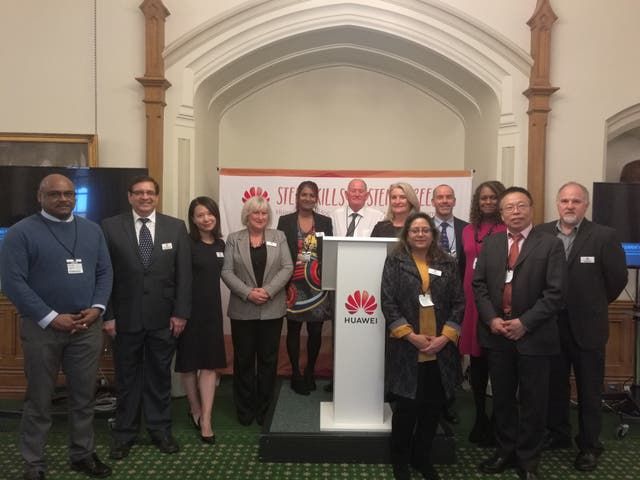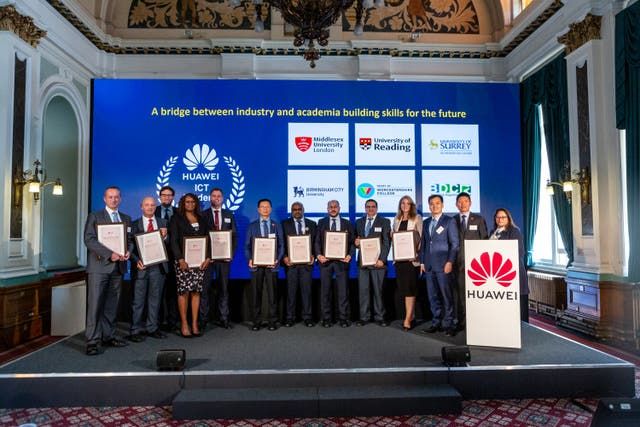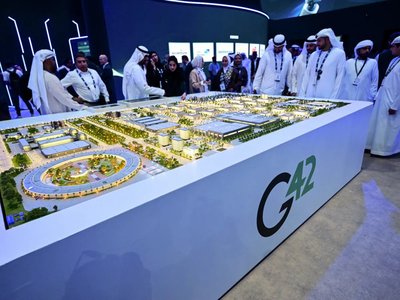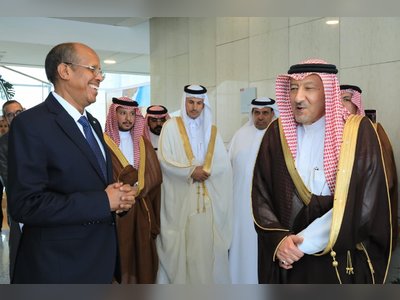
Closing the digital skills gap is key to unlocking London’s recovery
The experience of the pandemic has accelerated trends in the way we work and the skills required to take part in a changing economy.
For those fluent in the digital world, a post-pandemic society promises a wealth of opportunities. Yet if London is to rise and achieve its potential, we need more than just a select few to be part of it.
The widening digital skills gap threatens to hold our economy back and we will all suffer as a consequence.
According to a study by the Learning and Work Institute, the number of young people taking IT subjects at GCSE level has fallen by 40 per cent since 2015.
In a report published in March 2021, the independent policy and development organisation also found that confidence among businesses about digital skills is low, with less than half of UK employers believing that new entrants to the workforce were arriving with the necessary digital skillset.
To recover from the coronavirus pandemic, 80 per cent of UK business leaders believe that investment in digital skills will be needed, which highlights that from a business perspective, urgent action to close the digital skills gap is required.
Encouraging young people to take up STEM jobs

We need to attract more people to train in STEM subjects
Why do we find ourselves in this situation with such a mismatch between the skills being developed and what is demanded by the economy?
The reality is we have been drawing for too long on a pool of talent too shallow to power the economy of the future. For many young people, particularly women, they believe the myth that STEM subjects and the careers they enable are not for them.
Research by PwC looking at women in tech shows that women make up only 23 per cent of STEM jobs and remain underrepresented in the sector. Even more concerning, only three per cent of women say that a career in tech was their first choice – an alarmingly low number narrowing down the pool of recruits.
I know from personal experience they are wrong. As a young student, I wanted more than the home economics and cookery classes I was being pushed into. I was one of the country’s first female telecoms apprentices and was determined to set out to prove women were just as capable as men.
Having did that, I was able to pass on my experience to another generation of women as a teacher. Our generation had to put up with casual sexism and challenge prejudices about what a woman could do in the workplace. We helped pave the way for a new generation of women and normalise the idea of females in the ICT world.
But we are still falling short. That is why I am taking the drive to recruit fresh talent to the next level as the director for Huawei’s ICT Academy programme.
Huawei’s ICT Academy programme

Huawei is working with academia to offer globally recognised ICT industry certifications
Like many tech companies, we are taking matters into our own hands to address the looming skills gap which threatens to hold back our progress.
We are creating a virtuous circle – showing people the value of digital skills, creating the capability required for our sector and helping develop a more productive economy.
This shows the real value of making the private sector a partner in equipping young people with digital skills. Our knowledge and expertise can help bring about the change needed and remove the barriers which have existed for too long.
We know that if women are reassured the skills they are being taught are valuable in the job market, it will make them feel confident in taking up STEM. By providing training, teaching and inspiration from mentors and practitioners, we can show a different path is possible.
Some simple steps can be all that is needed to draw more people into the world of ICT. For example, Huawei’s ICT Academy programme is piloting women-only STEM classes, aimed at creating a network of women supporting each other’s learning. Virtual work experiences are making the initial steps into male-dominated workplaces slightly less daunting.
How Huawei helps with universities, colleges and schools
We are working with universities, colleges and schools, enabling academia to offer globally recognised ICT industry certifications to their students. Our goal is to enable students at universities and colleges to gain industry certifications and employable skills.
We are also helping teachers by providing learning resources directly from the digital and IT sector, helping them to keep abreast of the fast-paced changes in digital skill requirements. This means that teaching staff can use the resources we provide, secure in the knowledge that the content is up-to-date, relevant and valuable to their students.
This is about more than personal opportunity and advancement. This is about building a modern, 21st-century economy which powers the recovery of our country.
London has always been at the cutting edge of technology and drawn people with ability to understand the latest trends. Yet if we are going to go up to the next level of the recovery, we need to make sure everyone gets the chance to take part in what is to come.
If too many people get left behind by the digital economy, it will be London and the UK which trails the rest of the world.











